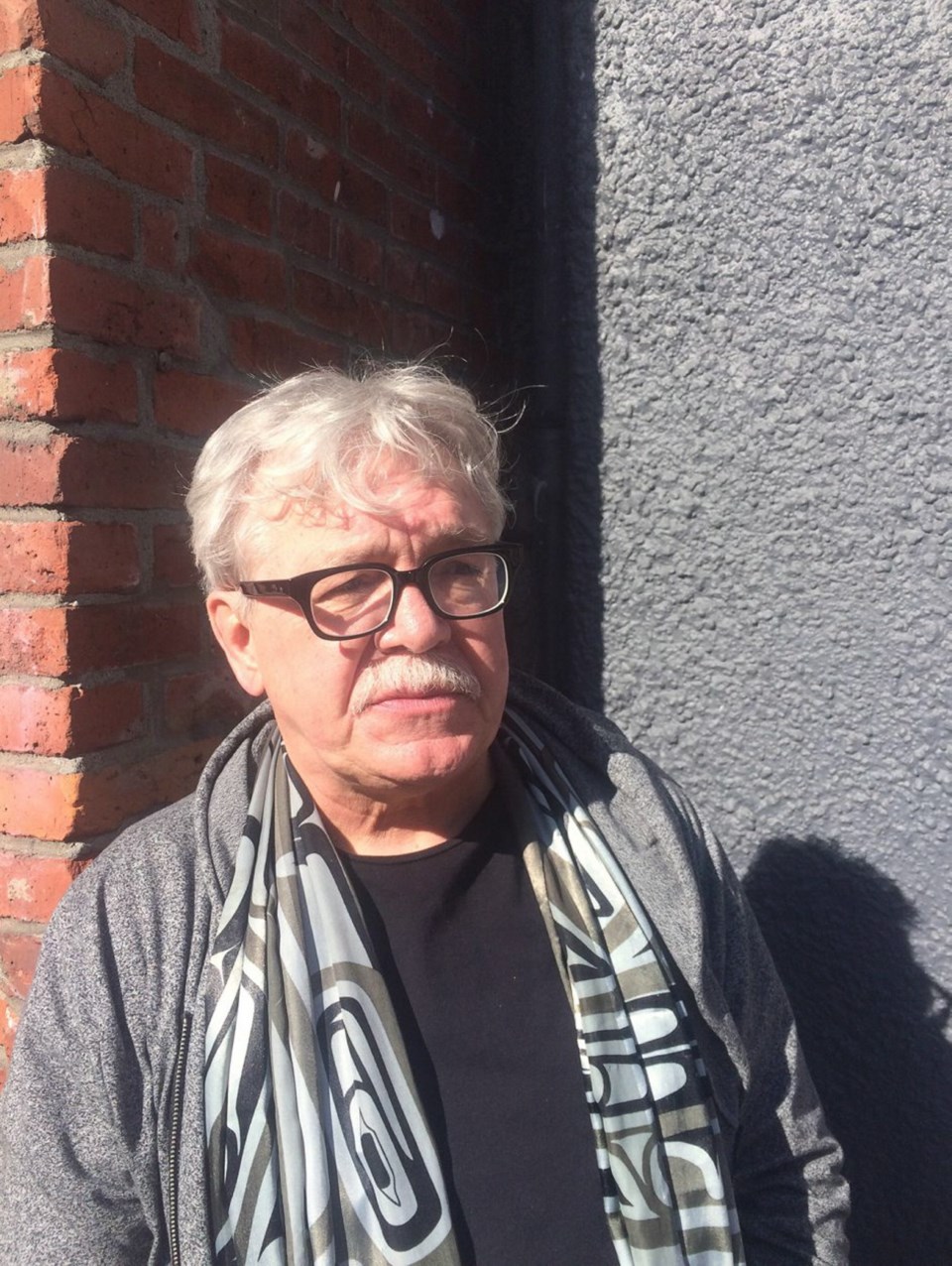Convicted bank robber-turned-author Stephen Reid, who made headlines for his role in the notorious Stopwatch Gang and for an armed robbery and shootout in Victoria in 1999, was denied full parole on Tuesday.
Reid, who is serving an 18-year sentence for robbery and the attempted murder of a Victoria police officer, had asked the National Parole Board to be allowed to leave his halfway house and live in the community.
Reid, now 64, has been on day parole since February 2014, which requires him to return to the halfway house before his curfew requirement every day.
Two members of the parole board denied his request for full parole, saying even though Reid has made great strides in his recovery, his long criminal record, history of substance abuse and deceit make him a risk to society.
Reid will be free in August, when he reaches his statutory release date, having served two-thirds of his sentence.
Sitting before the parole-board members, wearing thick-frame glasses and a long scarf, Reid acknowledged that his actions on June 9, 1999, terrorized the community and took an entire neighbourhood hostage.
On that day, Reid held up a Cook Street bank with a shotgun and then, as a passenger in a getaway car that tore through the quiet streets, shot at Victoria police officer Bill Trudeau and a bystander, narrowly missing both. Reid then broke into the home of an elderly James Bay couple, holding them hostage as he hid from the cops until his arrest that night.
Reid said at the time, he was addicted to heroin and cocaine and living “a life of chaos, like living inside a pinball machine.”
“It’s hard to reconstruct how insane was that deep addiction ... [while] sitting here in a healthy place,” he said. “It’s hard to figure out that I was that person.”
Reid had already been convicted of robbery in connection with his role in the Stopwatch Gang, a group that carried out about 100 highly organized bank heists that netted $15 million during the 1970s. Reid was once featured on the FBI’s most wanted list, before being arrested in 1980. He spent several years in prison in Canada and the U.S. and was released on full parole in 1987.
His parole officer, Heather Todd, supported full parole for Reid, saying he has attended Narcotics Anonymous meetings, often taking other parolees along, and participated in First Nations healing rituals.
Todd said Reid planned to move to Haida Gwaii to live with his wife, poet Susan Musgrave.
Todd told the parole board Reid could still be monitored by a parole officer in the remote community and continue his addiction treatment. His aboriginal liaison officer at William Head Institution and the head of Reid’s halfway house also supported full parole.
Reid said while he’s disappointed with the parole board’s decision, he understands. “I am in society [already], but they just want to maintain stronger oversight over me because I have a huge, long criminal record to overcome,” he said after the hearing. Reid said he has moved beyond his criminal past and has turned to writing screenplays.
Reid’s latest book, A Crowbar in the Buddhist Garden, earned him the Victoria Book Prize in 2013.
He said in six months, he plans to move to Haida Gwaii to be with Musgrave, who was his writing mentor. Reid began writing in 1984 while incarcerated at Kent Institution in Aggasiz, which is also where Reid and Musgrave were married in 1986. He published his first book, Jackrabbit Parole, that same year.
Reid is also anxious to spend more time with his daughter, Charlotte, and her twin daughters, who live in Sidney.
Reid must abide by conditions, including abstaining from consuming alcohol and illicit drugs and avoiding anyone he knows or suspects is involved in criminal activity.
Reid was granted day parole in January 2008 but that was revoked in November 2010, when the vehicle he was driving was stopped by police. Inside were 3,600 contraband American cigarettes.
Reid said parole board members “deal in a world of black and white” and in the criminal justice system, “you’re frozen at the worst moment of your life.”
But he insists he’s moved beyond that criminal world.
“I think I’ve transcended it very well.”



